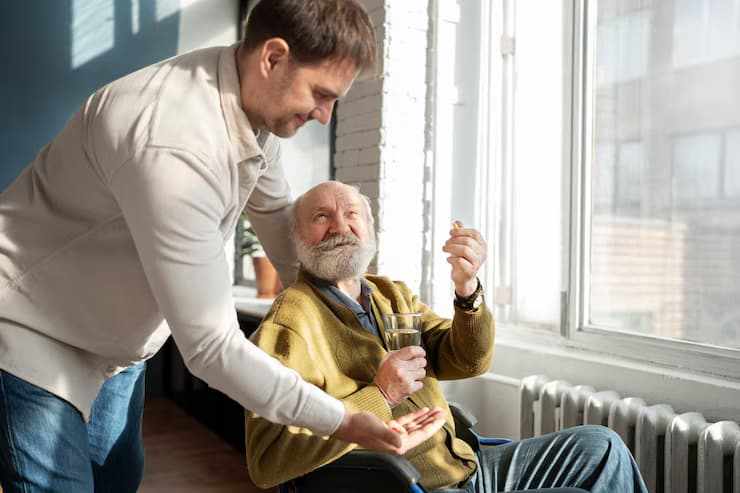
A stroke can be a life-altering event, leaving individuals with physical, emotional, and cognitive challenges that require comprehensive rehabilitation and care. As families navigate the complex journey of recovery, one option that has gained prominence is the utilization of stroke support care home. These specialized facilities offer a supportive environment designed to enhance rehabilitation and promote recovery. In this article, we will explore how stroke care homes play a crucial role in the rehabilitation process, the services they provide, and the benefits they offer to stroke survivors and their families.
Understanding Stroke Recovery
Before delving into the specific contributions of stroke care homes, it is essential to understand the recovery process following a stroke. A stroke occurs when blood flow to the brain is interrupted, leading to the death of brain cells and subsequent impairments in various functions, including movement, speech, and cognition. The extent of these impairments can vary widely depending on the type of stroke, the area of the brain affected, and the individual’s pre-existing health conditions.
Recovery from a stroke typically involves several stages, including acute care, rehabilitation, and long-term recovery. The rehabilitation phase is critical, as it focuses on helping individuals regain lost abilities and adapt to any permanent changes resulting from the stroke. This process can be overwhelming for both the stroke survivor and their family, making the supportive environment of a stroke care home an invaluable resource.
The Role of Stroke Support Care Homes
Stroke support care homes are specialized facilities that provide comprehensive rehabilitative services to individuals recovering from strokes. These homes offer a combination of medical care, therapeutic services, and social support, all tailored to the unique needs of stroke survivors. Here are some of the ways these care homes support rehabilitation and recovery:
1. Multidisciplinary Care Teams
One of the key features of stroke care homes is the presence of multidisciplinary care teams. These teams typically consist of healthcare professionals from various fields, including:
Physiatrists: Physicians specialized in rehabilitation medicine who oversee the overall recovery process.
Physical Therapists: Experts who focus on improving mobility, strength, and coordination through targeted exercises and techniques.
Occupational Therapists: Professionals who assist individuals in regaining the ability to perform daily activities and tasks, promoting independence.
Speech-Language Pathologists: Specialists who work with patients to improve communication skills and address any swallowing difficulties that may arise after a stroke.
Neuropsychologists: Experts who evaluate and treat cognitive and emotional challenges resulting from brain injuries.
This collaborative approach ensures that each aspect of a stroke survivor's recovery is addressed, facilitating a more comprehensive rehabilitation process.
2. Customized Rehabilitation Programs
Stroke care homes design individualized rehabilitation programs tailored to each resident's specific needs and goals. Upon admission, a thorough assessment is conducted to evaluate the patient's strengths, challenges, and preferences. Based on this assessment, a personalized care plan is created, outlining the therapeutic goals and interventions necessary for optimal recovery.
These customized programs may include:
Physical Therapy Sessions: Regular sessions aimed at improving mobility, balance, and strength through targeted exercises and activities.
Occupational Therapy Activities: Engaging in meaningful tasks that promote independence in daily living, such as cooking, dressing, and personal care.
Speech Therapy Exercises: Activities designed to enhance communication skills, language comprehension, and cognitive processing.
By addressing the unique needs of each individual, stroke care homes can facilitate more effective rehabilitation and foster a sense of accomplishment as residents achieve their goals.
3. Emotional and Psychological Support
The emotional impact of a stroke can be profound, with many survivors experiencing feelings of sadness, frustration, anxiety, and even depression. Stroke care homes provide a supportive and nurturing environment where residents can connect with others who share similar experiences. This social support is crucial for emotional recovery.
Care homes often offer group therapy sessions, support groups, and recreational activities that promote social interaction and emotional well-being. Residents have the opportunity to share their experiences, learn coping strategies, and build meaningful relationships with others on a similar path to recovery. The presence of trained mental health professionals further enhances the emotional support available to stroke survivors, helping them navigate the psychological challenges of rehabilitation.
4. Family Involvement and Education
Family members play a vital role in the recovery process, and stroke care homes recognize the importance of involving families in the rehabilitation journey. Care homes often provide educational resources and support for families, equipping them with the knowledge and tools needed to assist their loved ones effectively.
Families may participate in therapy sessions, receive guidance on how to support their loved one's rehabilitation at home, and engage in family counseling when needed. This involvement not only strengthens the support system for the stroke survivor but also helps families cope with their own emotional challenges during the recovery process.
5. Focus on Nutrition and Wellness
Proper nutrition is essential for recovery following a stroke. Stroke care homes typically provide balanced meals tailored to the dietary needs of residents. Nutritionists or dietitians may be involved in creating meal plans that promote healing and overall well-being.
In addition to nutritious meals, many stroke care homes offer wellness programs that include exercise classes, recreational activities, and relaxation techniques such as yoga or meditation. These programs not only support physical recovery but also contribute to mental and emotional wellness, fostering a holistic approach to rehabilitation.
6. Continuity of Care
Transitioning from acute care to rehabilitation can be a challenging process, and stroke care homes facilitate this transition by providing continuity of care. Residents benefit from a seamless transition between hospital-based care and home-like rehabilitation, reducing the stress associated with changing environments and healthcare providers.
Moreover, many stroke care homes maintain ongoing communication with the individuals' primary healthcare providers, ensuring that all aspects of the patient's care are coordinated. This continuity helps residents feel more secure in their recovery journey and allows for adjustments to their care plan as needed.
The Benefits of Stroke Care Homes
The advantages of utilizing stroke support care homes extend beyond the immediate rehabilitation phase. Families and stroke survivors can experience a multitude of benefits, including:
Enhanced Recovery Outcomes: The structured and supportive environment of stroke care homes, combined with personalized rehabilitation programs, can lead to improved recovery outcomes and a higher quality of life for residents.
Increased Independence: Through targeted therapy and skill-building activities, stroke survivors often regain greater independence in their daily lives, allowing them to participate more fully in activities they enjoy.
Social Connection: Stroke care homes provide opportunities for social interaction and connection, reducing feelings of isolation and fostering a sense of belonging among residents.
Comprehensive Support: Families can access a wealth of resources and support, empowering them to navigate the challenges of caregiving and enhancing their ability to support their loved ones effectively.
Conclusion
Recovering from a stroke is a complex journey that requires comprehensive support and rehabilitation. Stroke support care homes play a vital role in this process, offering tailored programs, multidisciplinary care, and emotional support to enhance recovery outcomes. By fostering a nurturing environment, these homes empower stroke survivors to regain their independence, rebuild their lives, and thrive in their post-stroke journey.
If you or a loved one is seeking assistance in navigating the challenges of stroke recovery, remember that you are not alone. Home Care Assistance Edmonton is dedicated to providing compassionate support tailored to your loved one's needs. Contact us today to learn how we can help you and your family through the journey of rehabilitation and recovery.



Write a comment ...